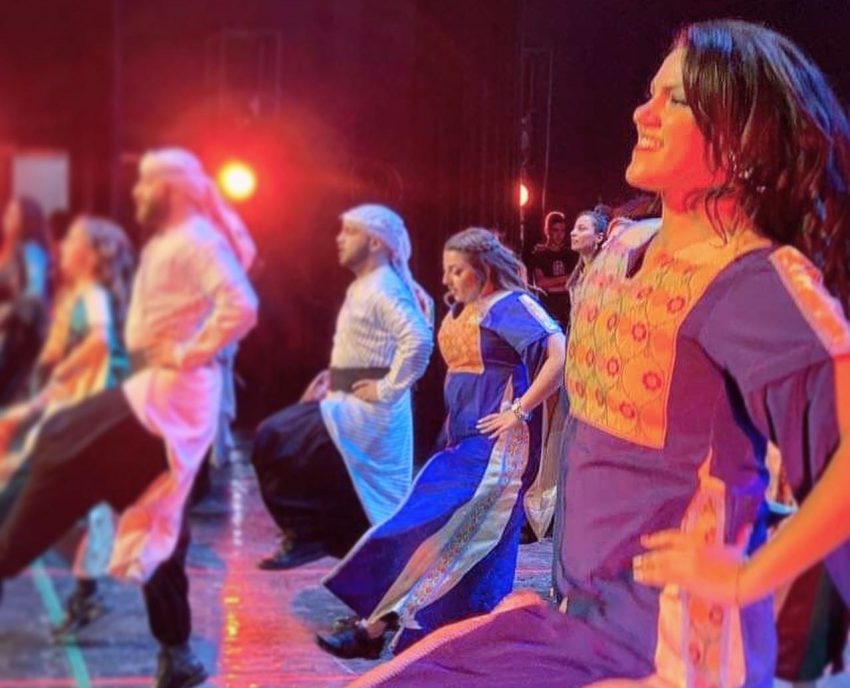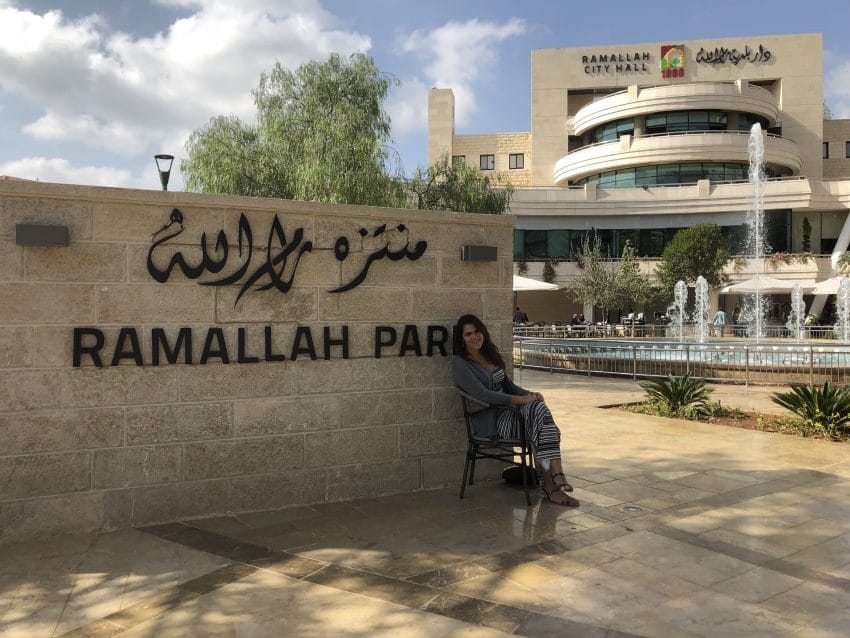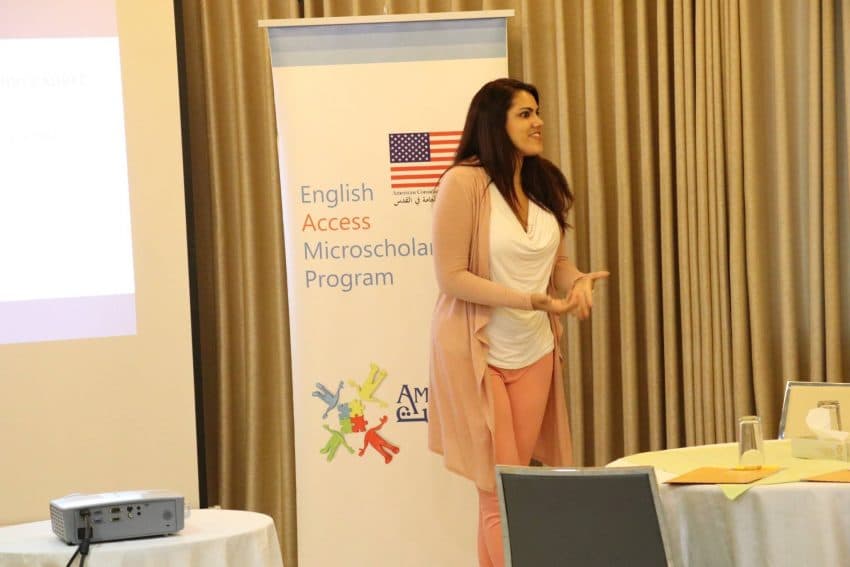
By Guest Author Elizabeth Pantaleon
Are you thinking about applying to the Fulbright English Teaching Assistantship (ETA) in the West Bank/Palestinian Territories? Have you been scouring the web for any tidbits on this seemingly mysterious post, what it’s like and how can you add an edge to your application? As the first ETA awarded to this post, I can tell you that I’ve been there, and I’m here to share some insights on what this unique position is like. Use these five lessons I’ve learned from the ground to tailor your application for this highly competitive post!
1. The “F” in Fulbright stands for flexible
This is one of the biggest takeaways I’ve gotten from serving as a Fulbright ETA and in particular serving as an ETA in the West Bank/Palestinian Territories. This post is unlike anywhere else. It is extremely enriching and challenging on multiple levels— professionally, personally, emotionally, and intellectually— and you have to be prepared for that. The only way to do so is by expecting the unexpected and being ready to deal with anything that comes your way. For instance, my fellow ETA and I were briefed that we would start a new English program at a local community center in Jerusalem for students in 6th and 7th grade and planned accordingly for this age group and their expected proficiency. As we were led into the classroom by the center director, we were greeted by smiling youngsters between the ages of 6 and 10 with a proficiency level too low and an attention span too short for what we had planned. On the spot we ended up having to scrap our two-hour-long lesson plan and wing it as the center and U.S. Embassy staff observed. Flexibility and adaptability are key to success in this post. Therefore, think of how you can highlight this skill throughout your application.
2. Being “woke” is a must, but you need teaching experience
During its inaugural year 2018-2019, this post proved to be the most competitive ETA post across all the regions with an award rate of less than 3%, according to Fulbright’s statistics. While this post may be ideal for individuals interested in social justice, conflict resolution, and delving into Palestinian culture and society, it is important to remember that this is a grant for English teaching. I heard firsthand from the individuals at the Department of State that one of the strongest aspects of my application was my amount of teaching experience. In college, I volunteered as a conversation partner and led communicative listening and speaking classes for international students at my university’s intensive English language program.
Moreover, if you have a passion for this post, but don’t have concrete teaching experience, seek out opportunities that will provide you with that experience. Ideally, find opportunities that allow you to teach English language learners in a class or group setting beyond one-on-one tutoring. If you do have teaching experience, use your Statement of Grant Purpose essay to highlight your concrete experiences and what practices and approaches you use when working with English language learners and how you will use these practices to engage different student audiences as an ETA.

3. Tell your story without delving into politics
Needless to say, this post is highly political in just about every sense of the word. While Fulbright encourages freedom of speech and diversity of thought, it is often best to leave political opinions out of your application. Instead, focus more on the purpose of this grant, which is to increase mutual understanding between people through language learning and cultural exchange.
You want to approach your Statement of Grant Purpose essay as storytelling with a purpose. Ask yourself and be able to answer, “why the West Bank/Palestinian Territories and why teaching in the West Bank/Palestinian Territories?” While I am not a teacher by trade, I was able to sell my passion for intercultural communication and language learning and showed how that related to my experience with Palestinians and learning about Palestinian culture. Ultimately, you should aim to marry your passion for immersing yourself in this particular post’s culture and society with your passion for teaching, communication and/or education rather than focusing on politics.
4. Don’t be intimidated to apply because of what you “think” about this post
Needless to say, I was surprised when I first found out there were ETA posts in the West Bank/Palestinian Territories given U.S. foreign policy in the region at the time I applied and throughout the duration of my grant.
In my early days on my grant, I did some Google searches to see what people were saying about this post, and I was disappointed to see people who are not involved with the program or post at all discouraging people from applying on the grounds that the then U.S. Consulate and now U.S. Embassy of Jerusalem Palestinian Affairs Unit would not be helpful in supporting its Fulbrighters. I can say that is completely false and that I and my fellow ETA worked closely with Embassy staff and American Spaces staff at our teaching assignment and felt well supported in every manner as international exchange participants.
As this post stands, it is unique and every day is different due to the nature of being based out of the American Spaces and working with their networks. I’ve had the pleasure of teaching in cities such as Ramallah, Jerusalem, Hebron, and others while teaching diverse courses and audiences ranging from conversational after school English for high schoolers to business English for civil society leaders and professionals and assisted high school students with their Common Application essays. These dynamic assignments have given me the opportunity to learn about and learn from different Palestinian communities while also sharing my own experiences and culture. Moreover, just about all of these opportunities were coordinated to some degree through the officers from the Palestinian Affairs Unit who oversee our grant administration. Just like any exchange experience, there are challenges; however, the Palestinian Affairs Unit team does their best to support its Fulbrighters.

5. Do your research and invest in your application to put your best foot forward
Three easy things you can do to craft a competitive application and tell your story in a compelling fashion are:
Read the Fulbright Act and use its language in your essays
I personally highlighted important phrases from the Fulbright charter, the Fulbright website’s mission, as well as the post’s country profile. I made sure to incorporate this language into my story. This helps you stay focused on the purpose of this program and exchange experience.
Seek recommenders who can speak about your teaching ability and your ability to serve as a cultural ambassador
Don’t get caught up in the glamour of seeking a recommender with a fancy title. The selection committee gives more weight to a well-written and genuine recommendation over a recommendation with less substance written by someone with an important title. When thinking about who to ask to be your recommenders, think of the two main purposes of this ETA grant and take a look at the recommendation form to see the questions they will be asked then make your decision. Secondly, you want to make sure you set your recommenders up for success by sending them your essays and an updated resume/CV so that they can have a peek at your interests, qualifications, and fellowship plans.
Think creatively about your community engagement project or supplemental research
Remember that as an ETA, you’re usually teaching only about 20-25 hours. The committee wants to know what else you plan on doing to make the most out of your time. Are you planning to further your language study, or volunteer, or join a club or organization? They want to know that you’ve been thinking about how you’re going to be proactive in getting involved in the community or toward accomplishing some goal that you have while on your grant. For instance, I am a cultural and dance enthusiast and wanted to share my Cuban-American culture while also learning about Palestinian culture through dance. I sought out the Latin dance scene in Ramallah via Facebook and mentioned how I would get involved to share my background as well as learn dabke, a Palestinian folk dance, in my Statement of Grant Purpose essay. If you are struggling to come up with an idea, check out this organization directory to get a look at the types of opportunities within different Palestinian organizations to potentially spark an idea.
Ultimately, take the time to really invest in your application and ask multiple people to review it.
If you are passionate about English teaching, cultural exchange, and immersing yourself in Palestinian culture and society, then this is the post for you! Keep these tips in mind when crafting your application and make sure to speak true to your story, skillset, and passion for applying to this post. Best of luck!
Elizabeth Pantaleon served as the first Fulbright English Teaching Assistant in the West Bank, where she helped design and implement English and cultural programs for Palestinian audiences at the American Spaces in Jerusalem and Ramallah. Prior to her Fulbright, she worked at the University of Florida English Language Institute for five years as a Language Assistant and as the Assistant Coordinator of the Cultural Immersion Program. She graduated from the University of Florida in 2017 with degrees in International Studies and Public Relations, and a minor in Arabic Languages and Literatures. Additionally, she interned and studied abroad in Jordan as a Gilman scholar, speaks Arabic and Spanish, and aspires to combine her love for education, cultural exchange and strategic communications as a future U.S. Foreign Service Officer.
© Victoria Johnson 2019, all rights reserved